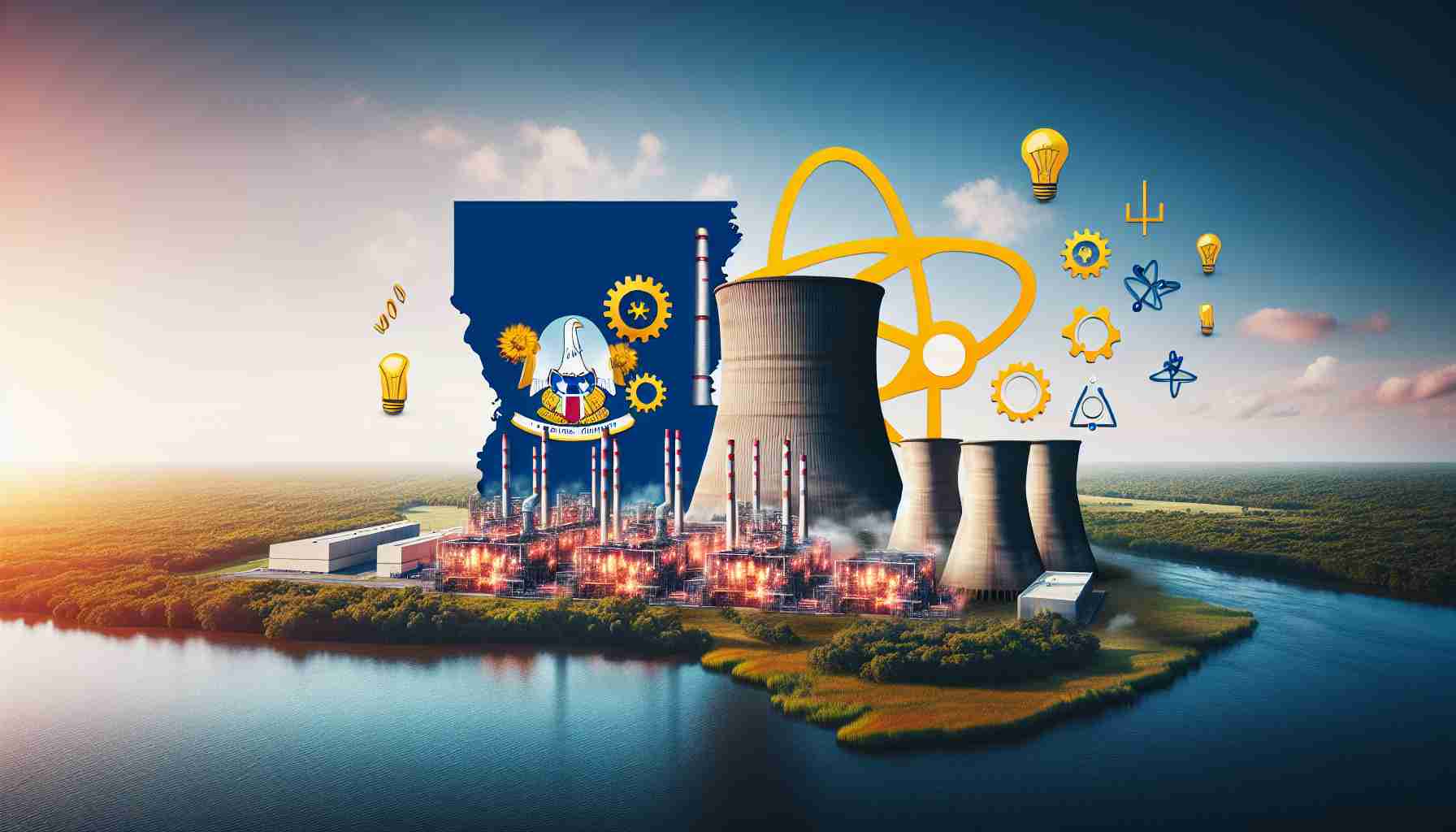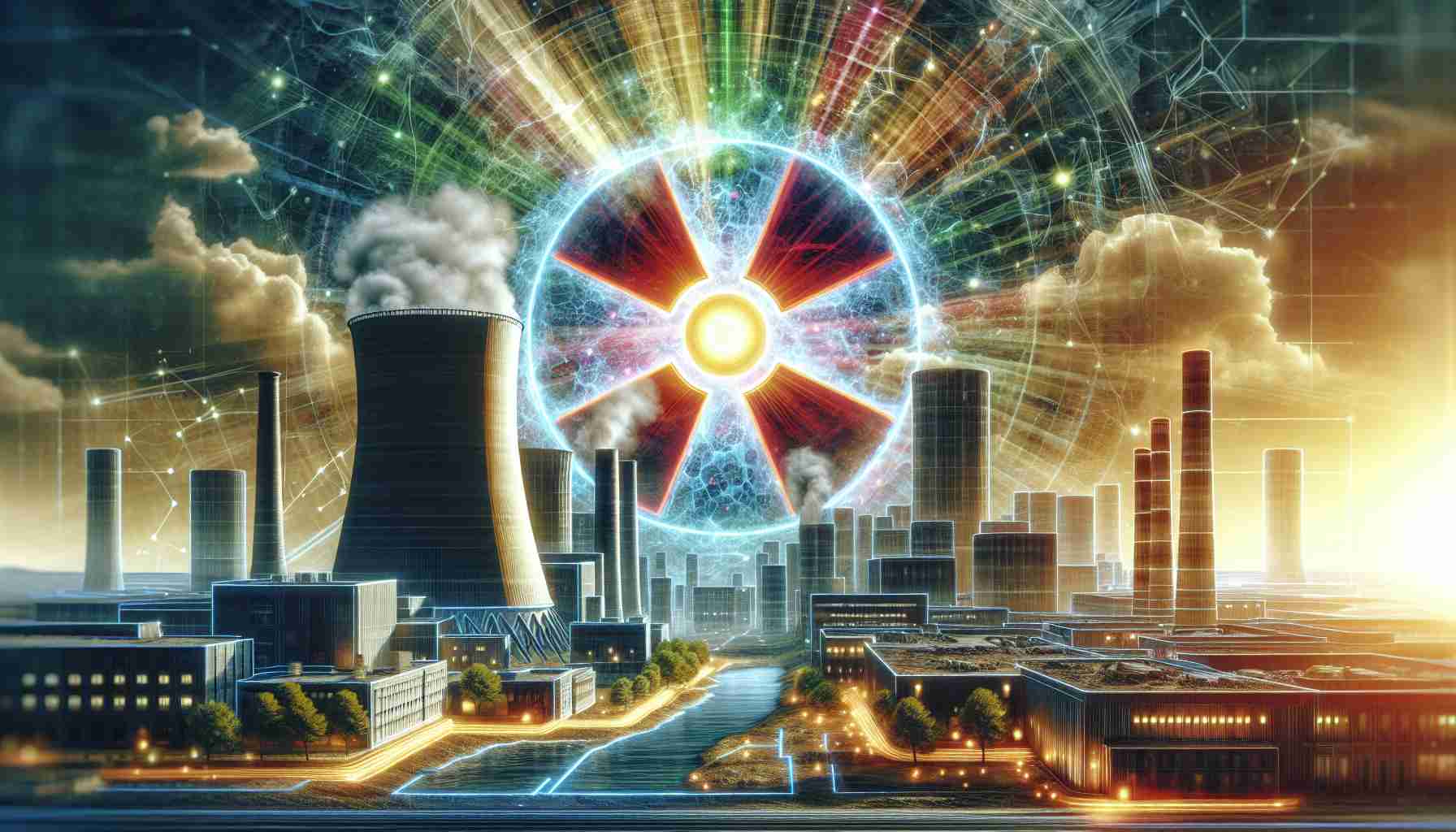Transforming the Energy Landscape
Louisiana is poised to take a significant step forward as it embraces advanced nuclear technology in its quest for clean energy leadership. During a recent meeting of the Louisiana Public Service Commission (LPSC), various stakeholders, including utility firms and energy experts, shared insights on integrating nuclear energy to achieve the state’s economic and environmental ambitions.
The LPSC has a crucial role in regulating utilities, providing them with the ability to recover costs while exploring new energy technologies. This framework was emphasized as essential for encouraging investment in advanced nuclear initiatives.
The LANCE Report recently published by the commission highlights nuclear power as pivotal to reaching net zero emissions and supporting the state’s heavy industrial sector. An effective synergy between nuclear and natural gas is seen as vital for delivering low-carbon energy solutions to industries eager to meet sustainability targets.
Advanced nuclear energy presents opportunities not just for clean electricity, but also for economic growth, attracting tech companies and industries looking for reliable, low-carbon power sources. Despite challenges like high initial costs, notably with small modular reactors, supporters believe that long-term benefits will outweigh drawbacks, especially with federal investments in place to aid the sector.
As Louisiana advances its nuclear capabilities, collaboration among utilities, state agencies, and educational institutions will be critical to fostering innovation and training a skilled workforce equipped for the future of energy. The LPSC plans to host future conferences to enhance strategies for successful nuclear energy deployment.
Beyond The Reactor: Implications of Nuclear Energy in Louisiana
As Louisiana embarks on its journey to harness advanced nuclear technology, the implications extend far beyond state borders, touching on societal, cultural, and economic dimensions on a global scale. Nuclear power holds the potential to reshape the energy landscape, leading to a more sustainable future and driving pivotal shifts in how energy is perceived and consumed worldwide.
On a societal level, the integration of nuclear energy can foster a cultural shift towards embracing cleaner alternatives. Public acceptance of nuclear power is often impeded by historical fears and misunderstandings, yet educational initiatives can demystify the technology, highlighting its safety and efficiency. Acceptance is crucial as communities come to recognize the pivotal role nuclear energy plays in combating climate change.
Economically, by positioning itself at the forefront of nuclear technology, Louisiana can attract not only tech firms but also foreign investments, positioning itself as a leader in the burgeoning green energy sector. As countries worldwide race to reduce carbon footprints, Louisiana’s advancement in nuclear energy could set a precedent, inspiring similar initiatives in other regions.
However, the potential environmental benefits are shadowed by challenges. While nuclear energy drastically reduces carbon emissions compared to fossil fuels, waste management and environmental safety remain critical concerns. Future trends in nuclear energy will need to address these issues comprehensively.
In the long term, if the collaboration between stakeholders is successful, Louisiana’s experience could serve as a model for other states and countries, demonstrating how advanced nuclear energy can play an integral part in a balanced, sustainable energy portfolio—one that is essential for a stable global economy in the face of climate change.
Pioneering the Future: Louisiana’s Advanced Nuclear Revolution
Transforming the Energy Landscape
Louisiana is set to redefine its energy framework as it embarks on a transformative journey utilizing advanced nuclear technology. This ambitious initiative aligns with the state’s aspirations for clean energy leadership and economic growth. Recent discussions at the Louisiana Public Service Commission (LPSC) have brought to light the significant role of nuclear energy in achieving state objectives.
Key Highlights from the LPSC Meeting
During a recent LPSC meeting, various stakeholders, including utility companies, industry experts, and regulatory officials, highlighted the potential of nuclear energy. The commission’s mandate allows utilities to recover costs while exploring new energy technologies, creating an encouraging environment for investment in advanced nuclear solutions.
The LANCE Report: A Catalyst for Change
The Louisiana Advanced Nuclear Collaboration Effort (LANCE) Report underlines nuclear energy as a cornerstone for achieving net-zero emissions. It identifies nuclear power as crucial for supporting the state’s heavy industrial sector, especially in the context of stringent sustainability goals. A strategic partnership between nuclear and natural gas is essential for delivering low-carbon energy solutions to industries striving for eco-friendly operations.
Pros and Cons of Advanced Nuclear Energy
Pros:
– Clean Energy Generation: Advanced nuclear reactors produce minimal greenhouse gas emissions compared to fossil fuels.
– Economic Opportunities: Attracts technology companies and industries seeking dependable, low-carbon energy sources.
– Long-Term Sustainability: Federal investments can help mitigate initial financial burdens associated with nuclear technology.
Cons:
– High Initial Costs: The upfront investment for small modular reactors and other advanced technologies can be significant.
– Public Perception: There are ongoing debates and concerns surrounding safety and waste management associated with nuclear energy.
Use Cases for Advanced Nuclear Technology
Advanced nuclear technology has versatile applications beyond electricity generation. It can support:
– Heavy Industries: Providing stable power to sectors like manufacturing and processing that demand substantial energy input.
– Research and Development: Facilitating breakthroughs in energy efficiency and innovative materials through research collaborations.
– Job Creation: Establishing educational and training programs to develop a skilled workforce equipped for the future of energy.
Innovations and Future Directions
As Louisiana forges ahead, collaboration among utilities, state agencies, and educational institutions is paramount. The LPSC recognizes the need for continued dialogue and plans to host future conferences aimed at refining strategies for successful nuclear energy deployment. This commitment to partnership will be crucial in navigating the complexities of advanced nuclear deployment.
Market Analysis: The State of Advanced Nuclear Energy
Currently, the global advanced nuclear market is experiencing considerable interest due to its potential role in the clean energy transition. According to recent market analyses, investments in advanced nuclear technology are projected to rise significantly over the next decade. With ongoing federal support, Louisiana is well-positioned to capitalize on this trend, enhancing its competitiveness in the clean energy landscape.
Conclusion
In summary, Louisiana’s strategic focus on advanced nuclear technology signifies a pivotal shift towards sustainable energy sources. By leveraging its regulatory framework and fostering collaboration, the state is paving the way for a cleaner, economically robust future. Keep an eye on developments at the LPSC for insights into how Louisiana continues to innovate and lead in the energy sector. For more information on this subject, visit the Louisiana Public Service Commission.
The source of the article is from the blog hashtagsroom.com



